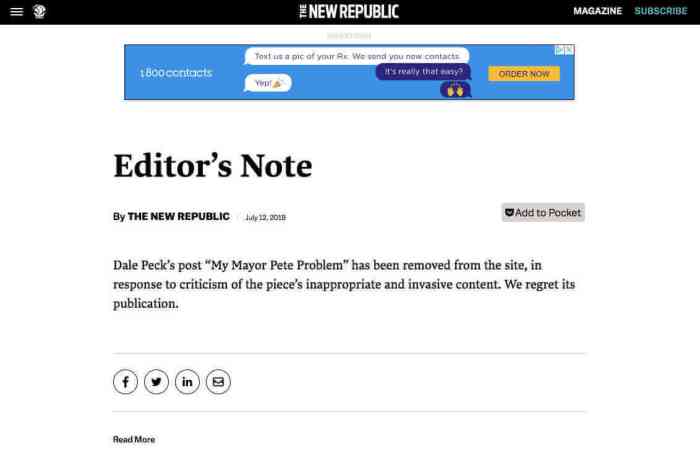Nearly 25 years after a woman was raped in Brooklyn’s Prospect Park only to be accused of fabricating the crime by Daily News columnist Mike McAlary — with what many LGBTQ activists said was the help of a senior NYPD official — James O’Neill, the current police commissioner, issued an apology to the woman.
“The survivor of the 1994 Prospect Park rape case suffered a terrible ordeal when she was brutally violated,” O’Neill wrote in an October 28 apology that was posted on the NYPD’s website and tweeted from O’Neill’s account on Twitter. “And there is zero justification for the additional trauma she endured when her word was doubted by authorities investigating her claim, and a writer for a major New York City daily newspaper, who — citing unnamed NYPD sources — predicted in print that she would soon be arrested for filing a false report.”
The woman, who remains anonymous to this day, was attacked in the park days before she was to speak at a rally opposing anti-LGBTQ violence. McAlary argued in three columns that she made up the crime to promote the rally and that police were going to arrest her. He maintained his position even after police disclosed that they had found semen on the woman’s clothing.
“I appreciate this straightforward and unequivocal apology from Commissioner O’Neill on behalf of the NYPD,” the woman said in written a statement on October 29. “It represents a significant step forward and stands in marked and welcome contrast to the current cultural climate where victims are denigrated and doubted. Nothing can undo the public excoriation I experienced; however, there is much healing to be found in this public statement to survivors that when they seek help, the NYPD is committed to treating them with dignity, credulity, and respect.”
Earlier this year, police revealed that DNA recovered from that semen match DNA from James Webb, now 68. He is currently serving a sentence of 75-years-to-life for 1998 sexual assault convictions. Webb is not eligible for a first parole hearing until 2070. The statute of limitations has run out on the 1994 rape and Webb cannot be charged in that case.
After that disclosure, John Miller, who was the chief NYPD spokesperson in 1994 and now heads the department’s counterterrorism unit, sent a written apology to the woman via Martin Garbus, the attorney who represented her in an unsuccessful libel lawsuit she brought against McAlary.
“We received something from John Miller two weeks ago and I don’t consider it an apology,” Garbus told Gay City News in January. “She has not received an apology.”
Miller was suspected of being complicit in McAlary’s columns though he has consistently denied playing such a role other than initially telling reporters to be cautious in writing about the rape case. Activists pressed the NYPD for a more public apology since the disclosure that Webb was the perpetrator.
Matt Foreman, who headed the New York City Gay and Lesbian Anti-Violence Project from 1990 to 1996, was among the activists and groups that pressed the NYPD to reform its Special Victims Division and to apologize to the woman.
“After the case was reopened and announced solved in January, a bunch of crime victims organizations got together and asked how can we use this to press forward for long needed reforms,” Foreman told Gay City News.
In two meetings this year with O’Neill, the commissioner was presented with “a significant list of reforms that had been festering for a long time” and O’Neill agreed to issue the apology at a meeting in May, Foreman said.
While the groups were not told exactly when the apology would be issued, they were given some advance notice. The woman agreed to give a single interview to a major news outlet and that interview, which was with the New York Times two or three days before the apology was made public, was facilitated by a publicist working with the groups.
Foreman said the meetings had produced some results in the Special Victims Division, and he credited Michael Osgood, the division’s commanding officer.
“I think he has taken a number of steps over the last nine months that have been very positive and innovative,” Foreman said. “The fundamental reality is that the division needs at least 140 more detectives… The division is woefully understaffed.”
Activists also wanted Miller fired, but O’Neill said at a January press conference that Miller had his continued support.
“That is disappointing,” Foreman said. “At the same time, I want to be forward looking… It is clear that nothing is going to happen.”
In his deposition in the woman’s libel lawsuit, Miller disputed that he had ever supported McAlary’s assertions that the woman was a liar and that her rape claim was a hoax.
Garbus obtained depositions that McAlary gave in lawsuits unrelated to the libel case and found that McAlary admitted to inventing stories and fabricating quotes to “illustrate” a story. He was deposed twice in the libel case and eventually had to reveal that he had a single source for his columns — John Miller. McAlary died in 1998.
The libel suit was dismissed in 1997, and the woman elected to not pursue an appeal though Garbus believed an appeal would be successful.































